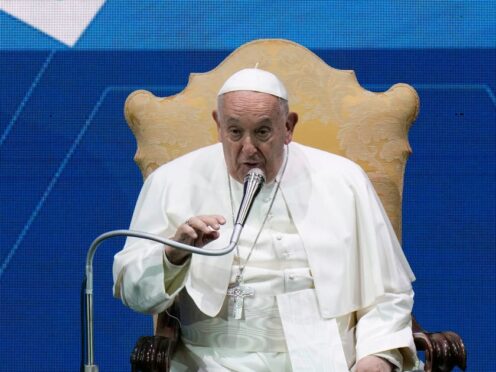
Pope Francis continued his campaign on Friday to urge Italians to have children, calling for long-term policies to help families and warning that the country’s demographic crisis was threatening the future.
“The number of births is the first indicator of the hope of a people,” Francis told an annual gathering of pro-family groups.
“Without children and young people, a country loses its desire for the future.”
It was Francis’s latest appeal for Italy – and beyond that Europe – to invert what he has called the demographic winter facing many industrialised countries.
Italy’s birth rate, already one of the lowest in the world, has been falling steadily for about 15 years and reached a record low last year with 379,000 babies born.
With the Vatican’s strong backing, the right-wing government of Premier Giorgia Meloni has mounted a campaign to encourage at least 500,000 births annually by 2033, a rate that demographers say is necessary to prevent the economy from collapsing under the weight of Italy’s ageing population.
Francis called for long-term political strategies and policies to encourage couples to have children, including an end to precarious work contracts and impediments to buying homes, and viable alternatives so women do not have to choose between motherhood and careers.
“The problem of our world is not children being born: it is selfishness, consumerism and individualism which make people sated, lonely and unhappy,” Francis said.
Francis is expected to continue emphasising his demographic call during the upcoming 2025 Holy Year, which has hope as its main theme.
In the official Jubilee decree, or papal bull, that was promulgated on Thursday, Francis called for a new social covenant among Christians to encourage couples to be open to having children.

Enjoy the convenience of having The Sunday Post delivered as a digital ePaper straight to your smartphone, tablet or computer.
Subscribe for only £5.49 a month and enjoy all the benefits of the printed paper as a digital replica.
Subscribe